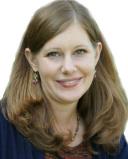Career
Schizophrenia and Ambitions
My professor jokingly talked about winning a Nobel Prize; I took it literally.
Posted March 15, 2020

When I was in high school, I was ambitious. At age 15, I entered an Ohio program called Post- Secondary Enrollment Options (PSEO), which allowed me to take classes at a local community college for dual high school and college credit. All my junior and senior courses were exclusively at a local college. My courses included political science, chemistry, calculus, and music theory (which would not have been available at my high school). When I received my high school diploma, I had completed 94 quarter credit hours of college.
Violin had always been my passion. Throughout my high school years, I practiced four to five hours every day. Academics and music left me very little time for socializing and deepening my relationships with friends. But I did have close friends in my community and enjoyed celebrating holidays, such as my birthday, Christmas, and Easter, with family and friends.
When it was time to consider college, I applied to universities that were well known for their music departments. My goal was to earn a bachelor’s degree in violin performance. However, during my senior year of high school, after visiting my first and second-choice universities (the University of Southern California and Rice University), everything changed. As I walked the campuses, I felt a change of heart and a surge of motivation to do something different with my life. For the first time, I thought about a degree in math, science, or possibly engineering.
When the University of Southern California offered me a Presidential Scholarship with half of my tuition covered, I could not pass up the opportunity and accepted the offer.
The summer following my senior year of high school, a family friend who knew I was interested in studying science arranged for me to work at a local biochemistry and molecular biology laboratory affiliated with the Cleveland Veteran’s Affairs Medical Center. Although I was certain I would not enjoy lab work, I tried it out to be polite to our friend. I planned to quit after just a few days.
One of the biggest surprises of my life was my newly found love of molecular biology. The laboratory physician was researching antimicrobial resistance. I learned about how bacteria release a certain enzyme called a beta-lactamase, which cuts up a beta-lactam bond inside of antibiotics, literally chopping the antibiotic. We studied how bacteria released different types of beta-lactamases, making the bacteria harder and harder to kill, even with multiple antibiotics.
In the fall of 1999, when I arrived at the University of Southern California, one of the first things I did was to send a few professors information about my research work in Cleveland. One of these professors read my email and was so impressed that he accepted me into his lab without meeting me. When I did show up to meet him, he was surprised I was only 17, but he let me stay in the lab despite my age.
I regularly attended weekly lab meetings, which included paid employees, students, and volunteers.
I don’t remember when exactly it happened, but I do remember it clearly: My research professor said that a Noble Prize was perhaps within his reach. His lab had just made a monumental discovery. They were the first to find that there was a certain enzyme that replicated DNA with low accuracy. This DNA copier created many different strands of DNA that were all slightly different from each other because of these errors (mutant strains). Once they found this enzyme in bacteria, other labs soon found similar enzymes in humans, some important in various types of cancer.
Looking back, the professor could have never expected that his reference to the Nobel Prize would profoundly change the direction of my life. When the professor mentioned the Noble Prize, it was a long shot, and he knew it. The lab was not one of the best in the world. But I was beginning to think that it was. I did not know that my thoughts were morphing into delusions, which are fixed false beliefs.
I remember one afternoon I came back from the lab and sat outside my dorm room, staring into space, thinking about my affiliation with what I considered to be one of the best labs on Earth.
That first semester at USC, somehow, I managed to get all A’s except for a B+ in organic chemistry, despite my heavy course load and many hours spent in the lab beginning a new project. It was in my second semester at USC that my research project really took off, and when it did, I began working in the lab regularly until 3 in the morning. I scored a C in one of my classes. But I didn’t care. Who needed good grades when they were affiliated with a lab that would win a Nobel Prize, which I considered to be one of the best on Earth?
Then I abruptly lost interest in lab work and went to China on a short humanitarian trip. It was my junior year, winter break.
While in China, I began to wonder if I could help raise the standard of living for millions or perhaps tens of millions of Chinese people living in poverty. After returning from China, I went to Africa a few months later, during my summer break, on another humanitarian trip. I traveled by myself. On my return to America, I founded a small nonprofit organization that sent thousands of dollars to help improve a poverty-stricken Nairobi community’s access to medical care. I never told anyone, but I really believed that my nonprofit was destined to win a Nobel Prize. As my schizophrenia was progressing, my delusional perspective on life also progressed.
Up until today, to the best of my knowledge, my former laboratory at USC has not been nominated for a Nobel Prize, though they have received other prestigious awards. Today, recovered on medication for schizophrenia, the idea of winning a Nobel Prize rarely enters my mind, unless I see people who really might deserve it being featured on PBS Newshour. But right now, I find contentment with my work, speaking and writing about schizophrenia and running a schizophrenia education and advocacy foundation.
My passion is educating people about schizophrenia, and the joy of watching people recover is the greatest prize I could ever hope for.




